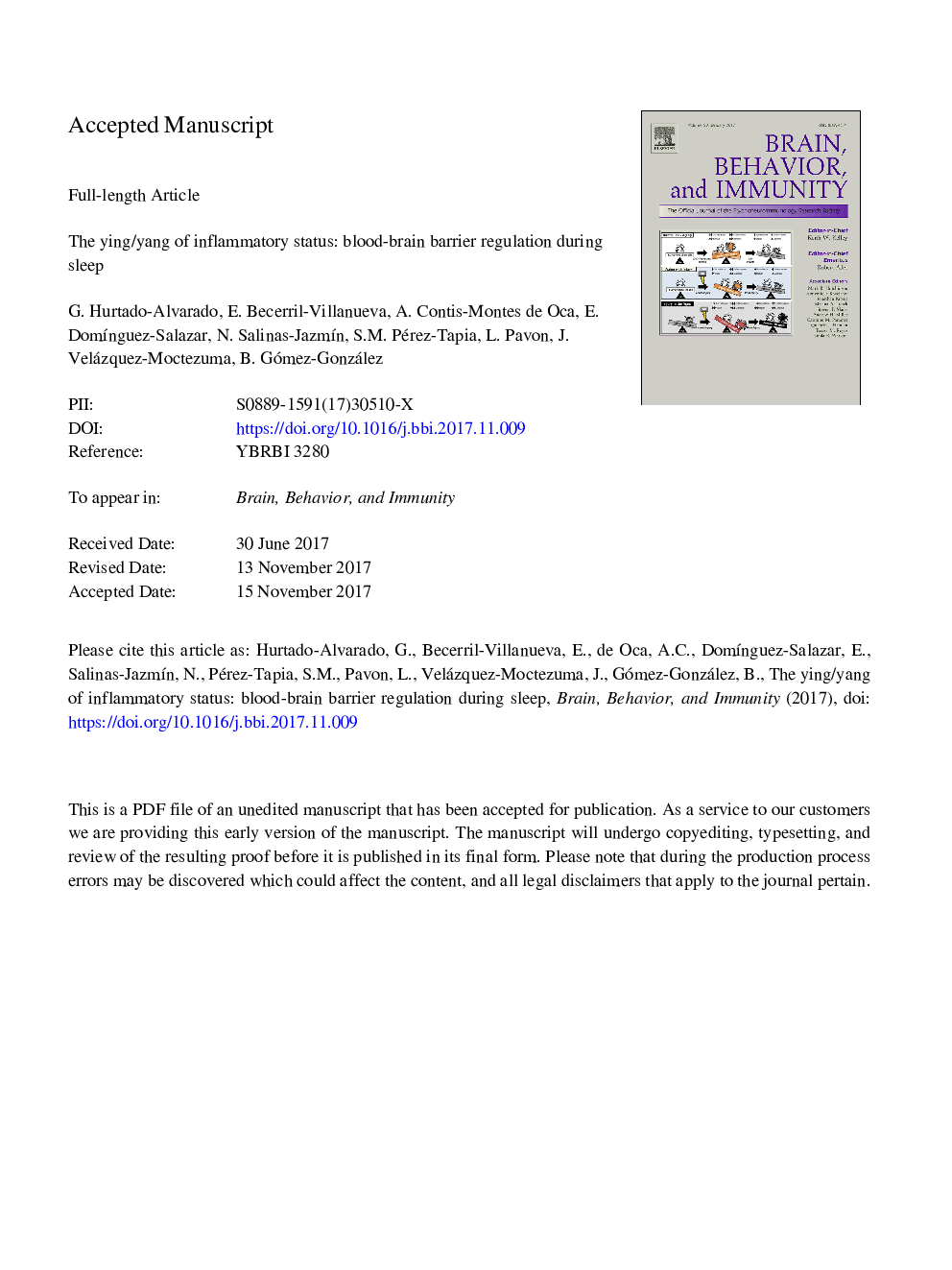| Article ID | Journal | Published Year | Pages | File Type |
|---|---|---|---|---|
| 7279385 | Brain, Behavior, and Immunity | 2018 | 41 Pages |
Abstract
Sleep loss induces a low-grade inflammatory status characterized by a subtle but sustained increase of pro-inflammatory mediators, which are key regulators of blood-brain barrier function. To investigate the influence of inflammatory status on blood-brain barrier dysfunction induced by sleep restriction we performed an experiment using two strains of mice with different immunological backgrounds, C57BL/6 mice that have a predominant pro-inflammatory response and BALB/c mice that have a predominant anti-inflammatory response. Mice were sleep-restricted during 10â¯days using the flowerpot technique during 20â¯h per day with 4â¯h of daily sleep opportunity. The systemic inflammatory status, blood-brain barrier permeability, and the hippocampal expression of neuroinflammatory markers were characterized at the 10thâ¯day. Serum levels of TNF and IFN-γ increased in sleep-restricted C57BL/6 but not in BALB/c mice; no changes in other cytokines were found. Sleep restriction increased blood-brain barrier permeability in C57BL/6 strain but not in BALB/c. The hippocampus of sleep-restricted C57BL/6 mice exhibited an increase in the expression of the neuroinflammatory markers Iba-1, A2A adenosine receptor, and MMP-9; meanwhile in sleep-restricted BALB/c mice the expression of this markers was lesser than the control group. These data suggest that cytokines may be playing a key role in modulating blood-brain barrier function during sleep restriction, and probably the effects are related to Iba-1, MMP-9 and A2A adenosine receptor overexpression.
Keywords
Related Topics
Life Sciences
Immunology and Microbiology
Immunology
Authors
G. Hurtado-Alvarado, E. Becerril-Villanueva, A. Contis-Montes de Oca, E. DomÃnguez-Salazar, N. Salinas-JazmÃn, S.M. Pérez-Tapia, L. Pavon, J. Velázquez-Moctezuma, B. Gómez-González,
